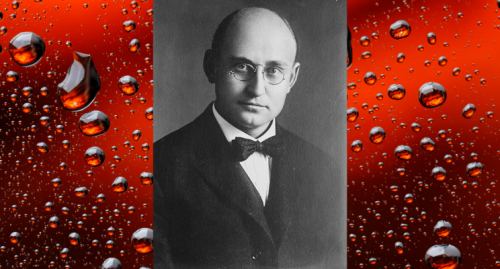Click image to read for free. Cognitive Consequences of Forced Compliance by Leon Festinger & James Carlsmith was the first of numerous studies to corroborate the theory of cognitive dissonance. The premise for this classic piece of research was to test what happens to a person’s private opinion when they are forced to do or say something contrary to that opinion.
16 março 2021
Maria Ann Smith – or as you might know her, Granny Smith – propagated the ancestor of...
Learn Psychology For Free
Access an outstanding free Introduction to Psychology course delivered by Professor Paul Bloom from Yale University.
On this day in psychology in 1911, The trial of U.S. v. Forty...

On this day in psychology in 1911, The trial of U.S. v. Forty Barrels and Twenty Kegs of Coca-Cola began. This famous federal lawsuit filed against the Coca-Cola Company of Atlanta, Georgia under the 1906 food and drugs act alleged that Coca-Cola ‘contained an added poisonous or added deleterious ingredient, caffeine which might render the product injurious to health.’
Prior to the trial the Coca-Cola Company called upon psychologist Harry Hollingworth for an opinion as to the influence of caffeine on mental and motor processes. In the absence of any reliable data on the subject, Hollingworth conducted a series of experiments to test the influence of caffeine on such things as perception and association, attention and judgment, steadiness, speed and coordination. Hollingworth testified that 'If the constant use of caffeine in moderate amounts would prove deleterious, some indication of such effect would have shown itself in the careful study of performance in tests covering a wide range of mental and motor processes.’
In the fourth week of the trial the case was dismissed, and for Coca-Cola, the rest, as they say, is history. By providing psychological information for the purpose of facilitating a legal decision, Hollingworth’s testimony represents a landmark case in the history of forensic psychology. Hollingworth went on to become a renowned applied psychologist, conducting pioneering research within the field of industrial/organizational psychology and advertising. He was elected President of the American Psychological Association in 1927.
VISIT –> www.all-about-forensic-psychology.com for quality forensic psychology information and resources.